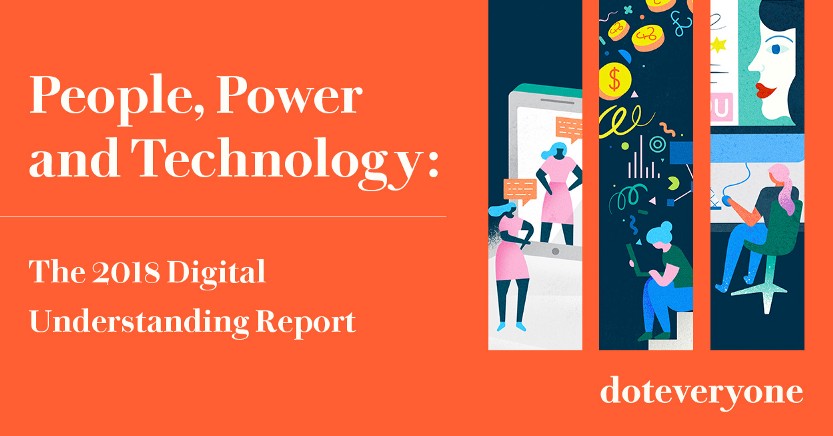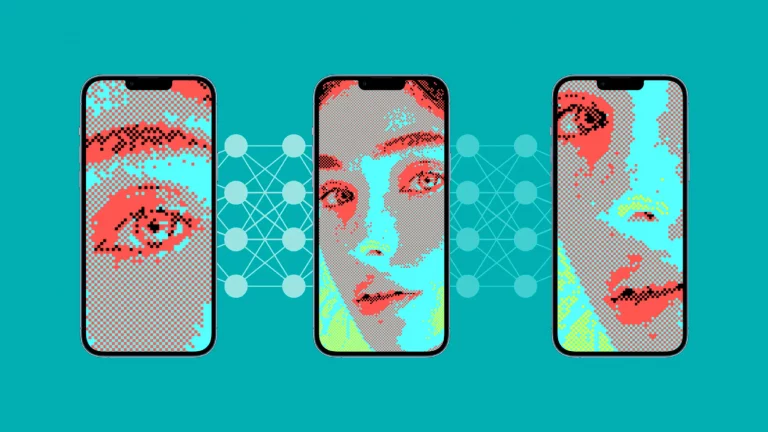Two reports on people’s attitudes and understanding of digital technologies

Doteveryone, a UK think tank that champions responsible technology for the good of everyone in society [similar to Milan’s newly founded Digital Culture Center], published two reports this year: the first one, The Digital Attitudes Report, explores how the British public thinks and feels about the internet technologies shaping our world and changing our lives, while the second, The Digital Understanding Report, presents a detailed analysis of the public’s understanding of digital technologies.
2018 Digital Attitudes Report
22 February 2018
The internet is the defining technology of our age. Connectivity and information are utilities, like electricity or water, that touch and influence every aspect of modern life in ways we can and cannot see.
The fact that it’s happening does not necessarily mean we are happy about it. Internet-connected products and services are almost ubiquitous: often we use them without thinking; frequently we have no choice.
This new research from Doteveryone looks beyond internet usage and explores how the British public thinks and feels about the internet technologies shaping our world and changing our lives. It is based on a nationally representative survey of 2,000 people online and 500 by phone, backed by in-depth conversations in focus groups, which are quoted in this report.
This report highlights:
- The internet has had a strongly positive impact on our lives as individuals, but people are less convinced it has been beneficial for society as a whole. 50% say it has made life a lot better for people like themselves, only 12% say it’s had a very positive impact on society.
- There is a major understanding gap around technologies. Only a third of people are aware that data they have not actively chosen to share has been collected. A quarter have no idea how internet companies make their money.
- People feel disempowered by a lack of transparency in how online products and services operate. 89% want clearer terms and conditions, half would like to know how their data is used but can’t find out.
- There is a public demand for greater accountability from technology companies. Two thirds say government should be helping ensure companies treat their customers, staff and society fairly.
2018 Digital Understanding Report
24 April 2018
The internet is a part of everyday life for most people in the UK – people spend more time online than they do asleep. Everything from televisions to kettles can connect to the internet.
Over 90% of the population have at least some basic digital skills, allowing access to the economic, social and civic opportunities the internet presents – from finding recipes to filing tax returns, keeping in touch with family and keeping track of finances.
But there’s a big difference between having skills – knowing how to use the internet – and having understanding – knowing the implications of using the internet.
Digital understanding is not about being able to code, it’s about being able to cope. It is about adapting to, questioning and shaping the way technologies are changing the world.
People Power and Technology : the 2018 Digital Understanding Report from Doteveryone sets out a definition of digital understanding, explores in depth the UK public’s understanding of technologies and exposes where the gaps lie.
The report shows where there are currently low levels of public understanding around digital technologies. But it does not lay the blame for this at the door of the public. Digital understanding is dependent on digital technologies being understandable. At present they are not.
The first part of this report introduces Doteveryone’s Digital Understanding model which defines what it is that people need to comprehend so they can usefully harness technologies in different aspects of their lives.
The second part of the report identifies specific understanding gaps and reveals blindspots around:
- How adverts target you – 45% are unaware information they enter on websites and social media can help target ads
- How your personal information is collected – 83% are unaware information can be collected about them that other people have shared
- How prices can vary – 47% of people haven’t seen prices change when they repeatedly search for an item or noticed friends or family seeing a different price for the same service
- Where your news comes from – 62% don’t realise their social networks can affect the news they see
- How products and services make money – 24% don’t know how tech companies make money
This research is based on a nationally representative survey of 2,000 people online and 500 by phone, backed by in-depth conversations in focus groups, which are quoted in this report.



